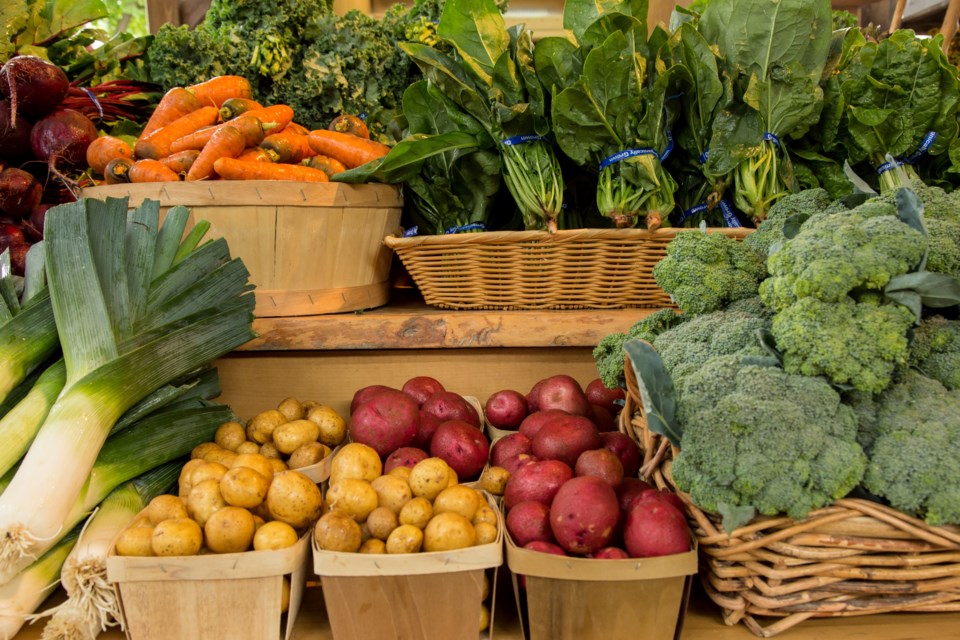NEWS RELEASE
NORDIK INSTITUTE
***********************
More needs to be done to promote access to safe, healthy, local food according to a policy paper released jointly by the partners of the Bring Food Home Algoma Summit, which originally took place in 2019. The paper builds on learning from the summit, which brought together stakeholders in food security and agriculture to discuss how to strengthen local food systems, particularly in light of changes to the Canada Food Guide. The summit partnership consists of the Rural Agri-Innovation Network (RAIN), the United Way’s Harvest Algoma, Algoma Public Health, the Johnson Farmer’s Market, and NORDIK Institute.
Bring Food Home Algoma: Policy Paper on Building Resilient Futures, highlights needs and challenges within the current food system, including the need for education about food production and processing, meeting food needs related to the region’s existing and emerging cultural diversity, and increasing access to healthy local food. It also underscores the need for cross-sector collaboration and diversifying local food production and promoting sustainable production methods.
The paper was previously distributed to sector stakeholders for comment and to promote advocacy prior to the public release this week.
The goal of the partnership is to promote policy that will ensure all people in Algoma have access to healthy, local food, and that the region is able to meet local demand for food as much as possible.“The crisis has posed a significant challenge to local farmers who are experiencing depressed commodity prices and vulnerable supply chains,” said RAIN Manager, David Thompson, “on the other hand there has been a surge of interest in local food with transition to online ordering and home delivery of local products.”
“The impact of social distancing measures to prevent the spread of COVID-19 has exposed much of the vulnerability in supply chains that bring many food and grocery items to the region,” said Gary Vipond, CEO of United Way Sault Ste. Marie & Algoma District. “Increasing local production will help us avoid the impacts of disruptions to those systems in the future.”
“The crisis has hit families hard in our region with hundreds of people being laid off work,” said NORDIK Director, Sean Meades, “so many people in our community can’t afford to put food on their tables and so many more are just one pay-cheque away from not being able to fully feed their families. We need more action from all levels of government and collaboration with local stakeholders to ensure no one in Algoma goes hungry.”
Dr. Laura Wyper, Assistant Professor in Community Economic and Social Development at Algoma University and NORDIK Institute stated, “Having sat on a Slow Food International COVID Canadian Task Force meeting last week, it’s clear that currently food sovereignty initiatives are increasingly happening across the globe. Covid-19 has not only shown us our food vulnerabilities but also our strengths. Citizen work with governments to increase food sovereignty isn’t about xenophobic protectionism in trade, but rather a move towards more resilient and sustainable local and regional food systems.”
The paper calls on municipal governments to create local food strategies and to pass by-laws that support small-scale agriculture and animal husbandry, and promote edible planting in public spaces, among other recommendations. Provincial and federal governments can promote greater food security and local production by increasing the place of food and food production in education curricula, and by providing funding to support Northern Ontario’s capacity to process and distribute locally produced foods and more.
To access or learn more about Bring Food Home Algoma: Policy Paper on Building Resilient Futures, visit NORDIK’s website or click here.
RAIN (Rural Agri-Innovation Network) is an initiative of the Sault Ste. Marie Innovation Centre with a mandate to build a resilient agri-food sector in northern Ontario through innovative applied research and agri-food development projects. The RAIN is dedicated to the needs of agri-food organizations, producers, suppliers and agri-entrepreneurs in northern Ontario. It enhances the industry by providing a collaborative infrastructure and network that enhances stakeholder capabilities and business growth. The RAIN conducts applied research based on questions from the agri-food sector, coordinates strategic funding targeted for infrastructure and innovation, and provides opportunity for market development of agri-food products through partnerships. RAIN’s goals over the next three years include:
- Accelerating food processing of northern horticulture crops
- Developing sustainable solutions to amend acidic soils in Algoma
- Addressing food distribution challenges
NORDIK (Northern Ontario Research, Development, Ideas and Knowledge) Institute is a community-based research group that has evolved from the Community, Economic, and Social Development (CESD) program and research at Algoma University. Since its inception in 2006, NORDIK has established strong links with other research institutes, universities, and colleges. NORDIK is committed to the practice of holistic community development and building local research capacity by working closely with its community partners and providing mentorship to new researchers and community development practitioners. For more information, please visit www.nordikinstitute.com.
This research is part of NORDIK Institute’s Sustainable North initiative. Sustainable North is an emergent research and evidence-based policy suite investigating options to promote greater community resilience, sustainability, and improved equitable quality of life in Northern Ontario.
**************************
